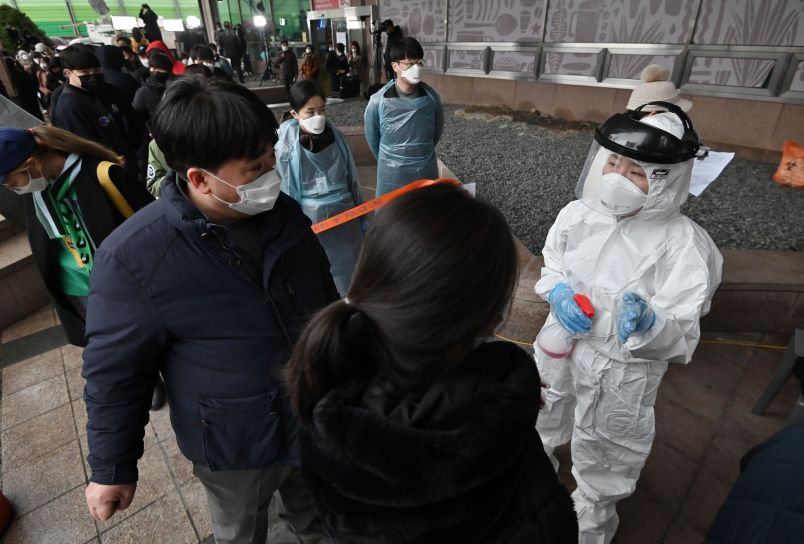As we make our way into this period of crisis, I’ve endeavored to speak and write very deliberately and as precisely as I can. That’s good practice generally. But words, emphasis and precision are more consequential now than usual. When I got TPM Reader JT’s fascinating follow up to my Korea post from yesterday, I realized I had not been as precise as I’d intended. South Korea is very different from the U.S., culturally, economically, geographically. No approach from there is going to be easily adaptable to the U.S. I thought I’d been clear on that but I think not enough. My point was that it is a model that lacks a lot of approaches in China which seem like simple nonstarters in the U.S., for cultural, constitutional and a host of other reasons.
JT is an American expat who teaches at a university in Japan and just finished a one year stint teaching in South Korea and returned to Japan late last month as the COVID-19 crisis was heating up. He shares with us what he believes are unique dimensions of Korean society that made their approach workable there but much harder to adopt in the United States …
The reasons I would give are as follows
Reason 1- The surveillance society massively greater than the US as is the Korean populace’s acceptance of it. I can’t believe that people in the US would even begin to tolerate the level of CCTV, card tracking, etc, that is used in Korea and if what does exist were deployed in some sort of makeshift network, the pushback would be immediate. While Koreans (and Japanese) make vague nods to privacy, it is the form rather than the actual substance, so ‘face’ can be preserved, but the capacity to track individuals down is still retained. That has allowed Korea to do contract tracking in a way that would be impossible in the US
Reason 2- Koreans respect the elderly in a way that doesn’t obtain in the US. I think this drives the much greater acceptance of measures that would be scoffed at in the US. My impression has been that the younger generation, despite the disgust with kkondae, the idea of ignoring the pandemic because it doesn’t seem to affect young people to any great extent, has not gotten any traction, whereas I get that impression from reading a lot of US reportage. A similar dynamic plays out in China and Japan where they discuss how getting older people to stop going out is more difficult than getting young people to follow suggestions.
Reason 3- Group dynamics in Asian societies are quite different from the West. Most foreigners have realized that despite the fact that masks are not effective except in cases of preventing others getting sick, wearing a mask becomes an indicator that you are socially conscious. Korea and Japan don’t have people complaining how everyone is fooled and not doing the right things. A mask becomes more like a ‘I gave’ sticker you get for doing blood donation, and when it is taken up by a majority of the population, it has a much greater effect than if it is simply done by a small minority.
Reason 4- National health The Korean efforts are based on a foundation of a national health system and it’s absence in the US makes it impossible to scaffold the initiatives that underlie them
Reasons 4 and 5 Geography and public transport South Korea’s geography and highly utilized public transport network provides ways to enforce many of the measures that would be impossible in the US.
This is not simply a ‘Korea is different from the US’ argument. It is that I think the features of Korea set up a situation where the US would have difficulty adapting a lot of the things that were done in Korea, and they would not get the same mileage. This would create a situation where the measures would seemingly fail, encouraging those who insist that the virus is a hoax and driving that portion of the electorate to ignore or circumvent the measures.






